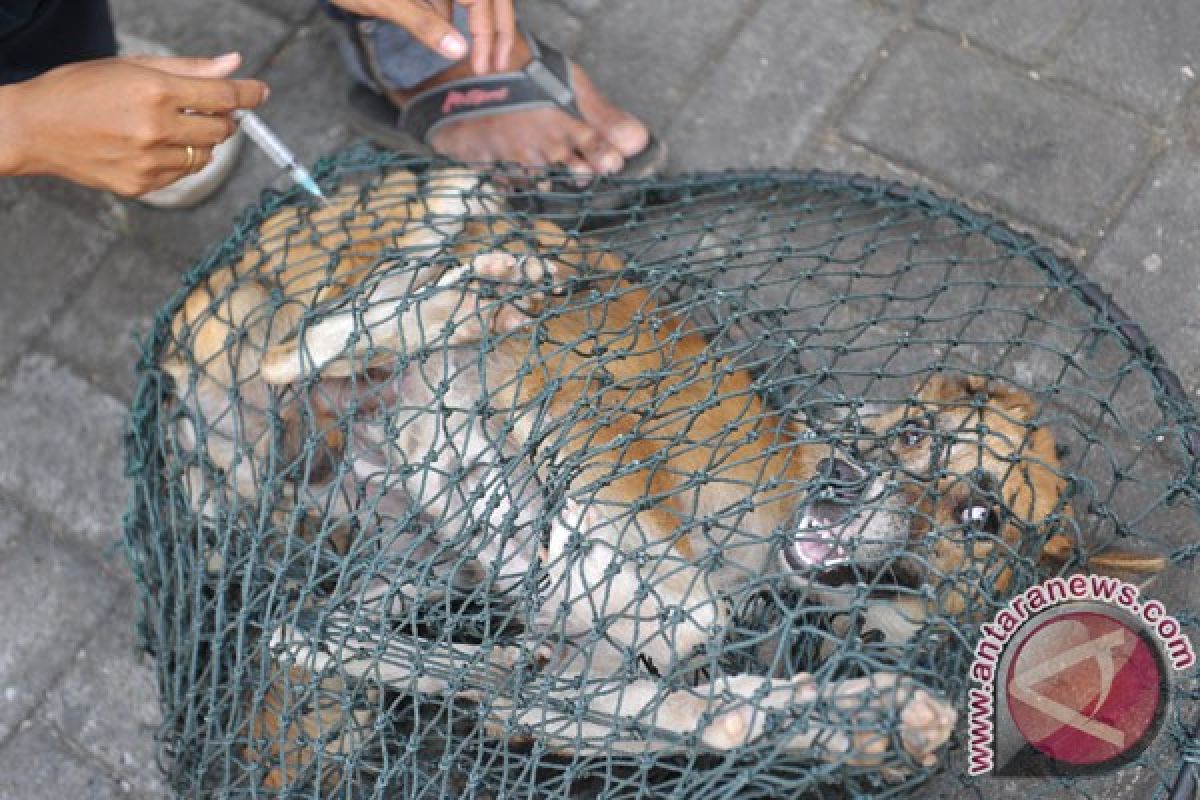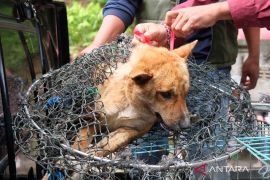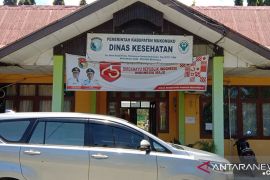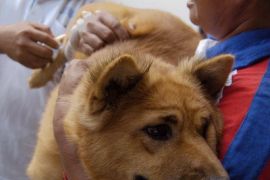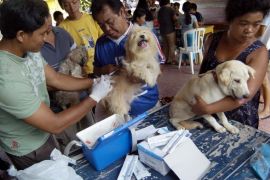The Indonesian Ministry of Agriculture has indeed mapped out provinces that continue to reel under the impact of this so-called "rabid-dog disease." In 2017, the ministry had recorded that 24 provinces in Indonesia remained classified as "Rabies endemic" (FAO, 2017).
The Food and Agriculture Organization of the United Nations (FAO-UN) has claimed that Rabies remains a "serious threat worldwide with 55,000 deaths per year, and more than 50 percent are in Asia" (FAO, 2017).
It is beyond doubt that Indonesia is definitely one of the countries in Asia struggling to free itself from rabies.
Considering the serious nature of this ongoing threat of rabies in Indonesia, FAO-UN, through its representative office in the country, has been maintaining collaboration with the Ministry of Agriculture since 2011.
As revealed on its official website, two years ago, the FAO worked with the ministry to conduct a rabies prevention and control program in the islands of Bali, Flores, and Lembata.
This year, the focus is on West Nusa Tenggara, as rabies outbreaks have occurred in certain areas of the province that shares sea borders with the popular resort island of Bali.
The rabies outbreak has reportedly occurred in Dompu District. In response to it, the FAO worked with the Indonesian Ministry of Agriculture and Dompu district government to train animal health officers to control rabies outbreak in the district.
According to FAO Representative in Indonesia Stephen Rudgard, the rabies outbreak in Dompu District that the local authorities reported had killed five people showed the importance of capacity building for the related authorities.
The outbreak of rabies in Dompu was unfortunate, but it demonstrated the need to develop capacities within the local government, and especially the animal health service, to detect and respond to a priority disease, such as rabies, Rudgard remarked in a press statement made available to Antara on Feb 8.
Head of Dompu District`s Livestock and Animal Health Services Zainal Arifin was quoted as saying that there had been 544 dog bite cases from potential rabies vector animals between late 2018 and early February 2019.
In dealing with this problem, the Ministry of Agriculture`s Directorate General of Livestock and Animal Health Services (DGLAHS) has taken immediate actions to control rabies outbreak in the district.
The directorate has dispatched a joint veterinary team to conduct investigations and immediate vaccination of dogs against rabies and convened a vaccination training for the district`s livestock and human health officers.
The vaccination training was co-organized by the DGLAHS and the Emergency Center for Transboundary Animal Diseases of the Food and Agriculture Organization of the United Nations (FAO ECTAD).
The two parties also held a training on the Procedures for Integrated Bite Case Management to enhance the knowledge and hone the skills of officers to prevent and control rabies in Sumbawa Island.
Dompu District is not the only area, whose residents suffer from the impact of rabies outbreak. Those living in Mataram, the capital city of West Nusa Tenggara Province, are currently under the threat of rabies as well.
Hence, the city government`s agricultural officers conducted a canine rabies elimination program. However, the local residents` demand for eliminating wild dogs tends to increase amid a real threat of rabies outbreak in the city`s administrative areas.
"We can receive up to three requests from the local residents for canine rabies elimination in a day," Head of the Mataram Agricultural Office H. Mutawalli revealed on Saturday.
Related News: Demand to eliminate wild dogs in Mataram has increased: official
The canine rabies elimination program has been conducted since January 2019 to deal with the dogs that might have been infected by this viral disease, he said, adding that some 10 to 20 dogs were handled in every elimination program.
Owing to this relatively high demand, the implementation of this elimination program was prioritized in crowded places, such as markets, since the wild dogs were often seen hunting for food there, Mutawalli revealed.
Seven people had, so far, been bitten by the wild dogs, but after being treated medically, they had been declared "free from rabies infection," he noted.
A cue should be taken from the related authorities on ways to handle rabies cases and how locals bitten by dogs take preventive and curative measures to take care of themselves.
Head of the Dompu District Health Office Iris Juita Kastianti reiterated the importance of visiting health centers immediately after being bitten by dogs and to complete the vaccination courses.
Unfortunately, people did not immediately report to health posts once they got bitten. Even after receiving the first vaccine treatment, several patients did not return to the district`s health centers to complete their vaccination courses, she pointed out.
Related News: Bali allocates Rp6.18 billion to prevent, control rabies
Kastianti suggested that after visiting a health center, a patient receives a mandatory rabies control card, but the patient must return to the health centers on specified dates for additional vaccination.
"If they do not complete the course of vaccination, the result could be very dangerous. Non-treated patients could die anywhere between two weeks to two years following a bite from a rabid dog," she cautioned.
She acknowledged that the community members still lack information on rabies. There is a pressing need to respond to this unfortunate reality by launching a sustainable public awareness campaign on the danger of rabies and the ways in which people can deal with it.
Reporter: Rahmad Nasution
Editor: Gusti Nur Cahya Aryani
Copyright © ANTARA 2019
